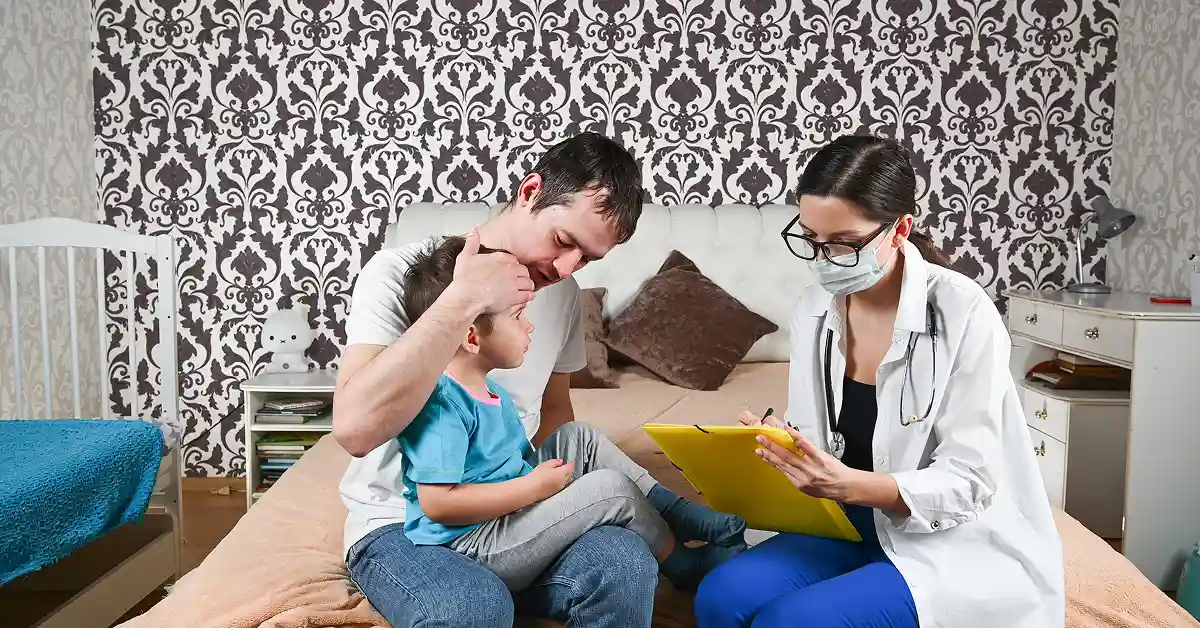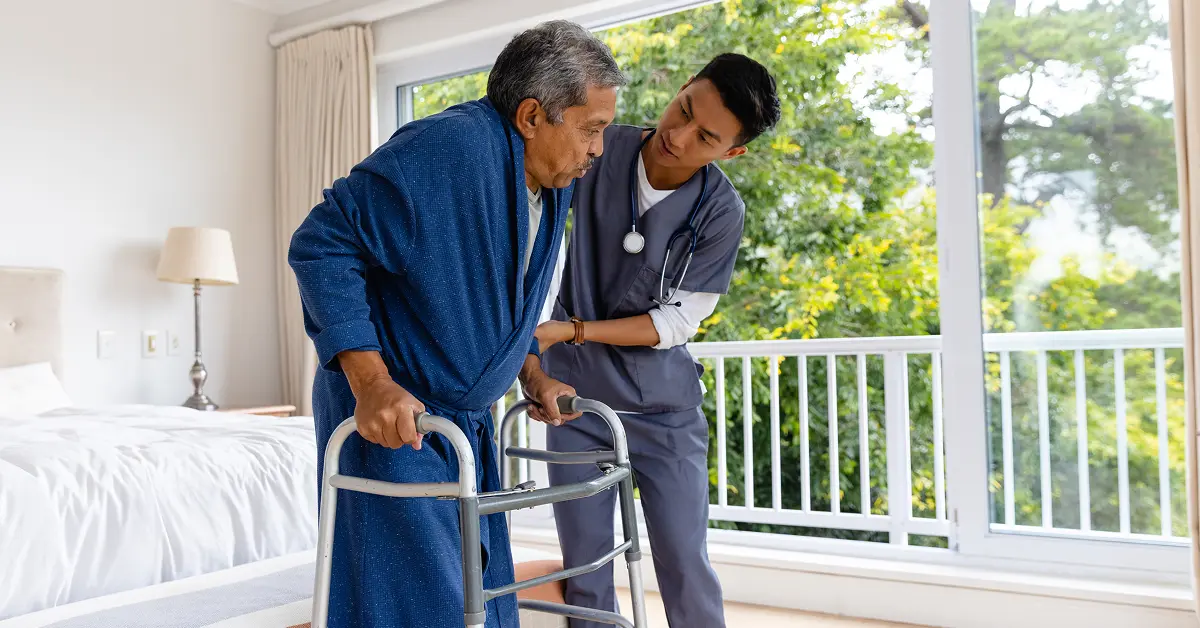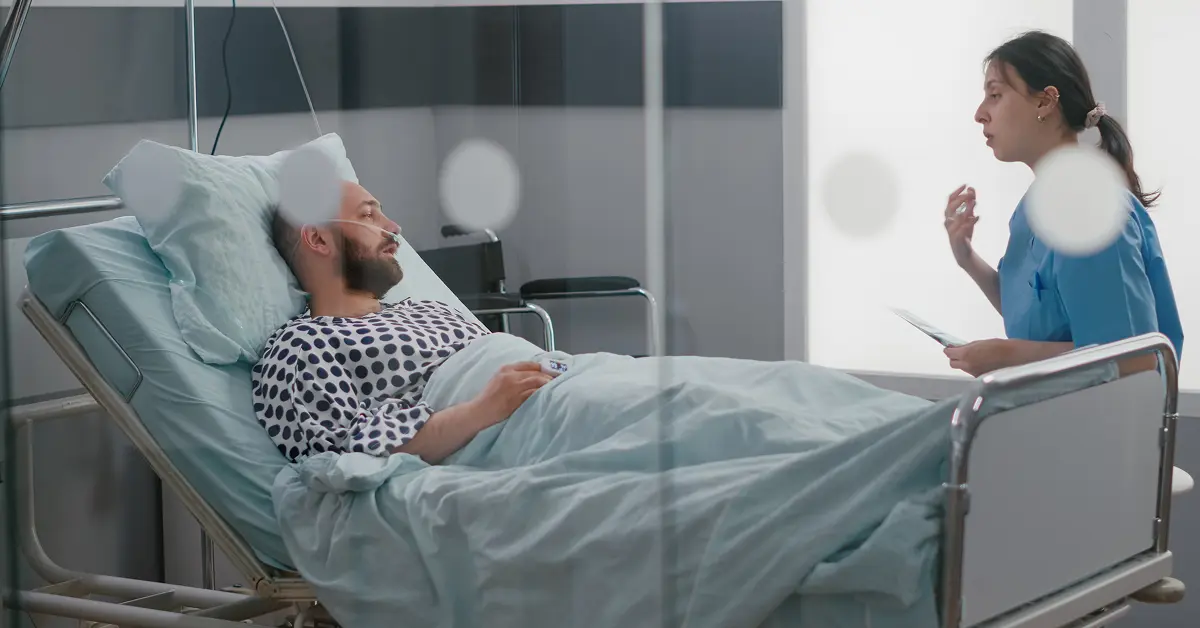Discover the importance of Hospital Discharge for faster recovery. Learn how professional home care services in India ensure comfort, safety, and long-term wellness after hospitalisation.
Recovering from a hospital stay does not end at the moment of discharge. For many patients, the most critical phase of healing actually begins once they return home. Whether it’s after surgery, an accident, childbirth, or a serious illness, proper post-hospital discharge care is essential to ensure a smooth transition, reduce complications, and speed up recovery. In India, where families juggle multiple responsibilities, having reliable care at home can make all the difference for both patients and caregivers.
In this blog, we will explore why post-discharge care is vital, the services it includes, and how professional home care can help patients regain health and independence faster.
Why Post-Hospital Discharge Care Matters
Many people assume that once a patient leaves the hospital, the toughest part is over. However, studies reveal that the risk of readmission is often highest in the first 30 days after discharge. This is because patients may struggle with medication routines, wound care, diet restrictions, or mobility challenges.
- Prevents Complications – Proper monitoring at home helps detect early warning signs of infection, relapse, or side effects.
- Ensures Medication Adherence – Missing doses or taking incorrect medication can delay healing or cause harmful effects.
- Reduces Readmissions – Professional follow-up care lowers the chances of returning to the hospital.
- Supports Mental Health – Recovery can be emotionally draining; having support at home reduces anxiety and depression.
- Promotes Independence – With the right care, patients can gradually regain mobility and confidence.
Common Challenges Patients Face After Hospital Discharge
- Managing multiple prescriptions with strict timings.
- Limited mobility due to surgery, weakness, or injury.
- Wound and catheter care that requires medical expertise.
- Nutritional needs specific to recovery (low-salt, high-protein, diabetic-friendly diets, etc.).
- Emotional struggles, including fear of relapse or frustration at dependency.
Essential Components of Post-Hospital Discharge Care
Post-hospitalisation care goes beyond basic assistance. It involves a structured approach designed around the patient’s specific medical needs. The key components include:
Medical Supervision
Trained nurses or caregivers monitor vital signs such as blood pressure, blood sugar, oxygen levels, and heart rate. This ensures that any abnormalities are immediately addressed.
Medication Management
Caregivers make sure that medicines are taken on time and in the correct dosage. They also watch out for side effects and coordinate with doctors when needed.
Wound and Surgical Site Care
Post-surgical patients need regular wound dressing and infection monitoring. Professional caregivers follow sterile methods to prevent complications.
Physiotherapy and Mobility Support
For patients recovering from fractures, strokes, or major surgeries, physiotherapy is crucial. Trained therapists help restore strength, flexibility, and mobility.
Nutrition and Diet Planning
Diet plays a significant role in healing. Caregivers ensure the patient follows a customised diet plan that supports recovery.
Emotional and Social Support
Patients often feel isolated or anxious after hospitalisation. Companionship and mental health support go a long way in boosting morale.
Coordination with Doctors
Regular follow-ups, either in person or via teleconsultations, help doctors track progress and adjust treatment as needed.
Benefits of Professional Post-Hospital Care at Home
- Comfort of Home – Patients recover faster in a familiar, stress-free environment.
- Personalised Attention – Care is tailored to the patient’s unique medical history and needs.
- Cost-Effective – Home care is often more affordable than prolonged hospital stays.
- Family Relief – Families get peace of mind knowing their loved one is under professional supervision.
- Faster Recovery – Structured care speeds up healing and improves long-term health outcomes.
Post-Hospital Discharge Care in India
With India’s growing healthcare needs, home care services are becoming increasingly popular in cities like Delhi, Mumbai, Bengaluru, Hyderabad, and Chennai. Families often find it difficult to balance professional commitments with caregiving responsibilities. Professional home care services bridge this gap by providing trained nurses, physiotherapists, dieticians, and attendants who ensure complete support.
Some providers even offer 24x7 critical care setups at home, including ventilators, ICU equipment, and round-the-clock monitoring. This has made it possible for patients with chronic conditions to avoid prolonged hospitalisation while still receiving high-quality care.
Tips for Families Managing Post-Discharge Care
- Prepare the home by arranging a safe, clutter-free space for the patient.
- Maintain a schedule for medications, meals, and physiotherapy sessions.
- Encourage movement (as permitted by the doctor) to prevent stiffness and blood clots.
- Watch for red flags like fever, unusual swelling, persistent pain, or shortness of breath.
- Offer emotional support by spending time with the patient and keeping them engaged.
Real-Life Example
Take the case of Mr. Sharma, a 65-year-old recovering from knee replacement surgery in Delhi. While the hospital discharge was smooth, he struggled with physiotherapy and wound care at home. His family hired a trained nurse for daily dressing and a physiotherapist for guided exercises. Within three months, Mr. Sharma regained his mobility and confidence—something that would have been difficult without structured post-hospital care.
The Road to Recovery
Hospitalisation may mark the end of immediate treatment, but recovery is a journey that continues long after discharge. Post-hospital discharge care ensures that patients not only heal physically but also regain emotional well-being and independence.
With professional home care services available across India, families no longer have to face the stress of managing complex medical needs alone. By investing in structured post-discharge care, you can provide your loved ones with the comfort, safety, and support they need for faster recovery.
Conclusion
Recovery does not stop at the hospital door—it begins anew at home. With proper post-hospital discharge care, patients can heal safely, avoid complications, and return to their normal lives much faster. Families in India can now access professional, affordable home care solutions that provide medical expertise, emotional support, and peace of mind.
If your loved one is being discharged from the hospital, consider professional post-discharge care—it could be the key to a healthier, faster, and more confident recovery.
Contents
- Why Post-Hospital Discharge Care Matters
- Common Challenges Patients Face After Hospital Discharge
- Essential Components of Post-Hospital Discharge Care
- Benefits of Professional Post-Hospital Care at Home
- Post-Hospital Discharge Care in India
- Tips for Families Managing Post-Discharge Care
- Real-Life Example
- The Road to Recovery
- Conclusion
Our 24*7 services
Latest Posts
- What Is Respite Care and Why Is It Important
- Affordable home care for senior citizens in India
- Caring for Seniors with Dementia or Alzheimer's at Home
- Senior Caregiving A Guide for Every Family
- How to Write a Caregiver Resume That Gets You Hired
- How Care After Hospital Discharge Speeds Up Recovery at Home
- How to Get Home Health Care for Seniors Through Medicare
- What Does a Senior Citizen Caregiver Really Do at Home
- How to Care for Elderly Parents with Alzheimer’s or Dementia
- How to Get 24-Hour Care for Seniors at Home



